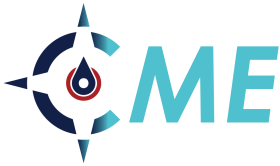
Intraoperative Considerations: Regional and Neuraxial Anesthesia- (Previously Recorded August 2025 Lunch and Learn)
This monthly learning session focuses on the critical aspects of intraoperative management related to regional and neuraxial anesthesia. Participants will gain a comprehensive understanding of various techniques, including spinal, epidural, and peripheral nerve blocks, and their specific applications in diverse surgical procedures. The program will delve into the physiological effects of these anesthesia types on major organ systems, enabling participants to understand how these effects influence intraoperative management. Furthermore, participants will learn to identify potential complications associated with regional and neuraxial anesthesia, such as hypotension, bradycardia, and nerve injury, and will be equipped with strategies for effective prevention and management.
Target Audience
Iowa Surgical providers
Clinical teams
Learning Objectives
Describe the various types of regional and neuraxial anesthesia techniques, including spinal, epidural, and peripheral nerve blocks, and their specific applications in different surgical procedures.
Explain the physiological effects of regional and neuraxial anesthesia on various organ systems, including cardiovascular, respiratory, and neurological, and how these effects influence intraoperative management.
Identify potential complications associated with regional and neuraxial anesthesia, such as hypotension, bradycardia, and nerve injury, and outline strategies for prevention and management during the intraoperative period.
Additional Information
| Attachment | Size |
|---|---|
| 380.98 KB |
Don Stader, MD FACEP FASAM
Dr. Stader is a board-certified emergency and addiction medicine physician, who works at Swedish Medical Center and Lincoln Health in Colorado. Don is also the founder and Executive Director of The Naloxone Project. He is the founder and past chair of Colorado ACEP's Opioid Task Force, the Editor-in-Chief of COACEP's 2017 Opioid Prescribing & Treatment Guidelines and the CO's CURE’s guidelines on pain control and opioid stewardship. Don served for over 2 years as the Senior Pain Management & Opioid Policy Physician Adviser for the Colorado Hospital Association and serves on multiple national and local committees addressing the opioid epidemic in Colorado and across the nation, he is the current chair of ACEP’s Pain & Addiction Management Section. He is the Medical Director of the Compass Opioid Stewardship Program, a nationwide initiative to improve pain control, prescribing habits, addiction treatment and opioid stewardship for primary care clinicians.
Jennifer Hah, MD, MS
As an anesthesiologist, pain medicine specialist, and clinical epidemiologist, my research interests span development of novel psychotherapeutic interventions at the intersection of pain, prescription opioid addiction, and psychology. As an NIH-funded researcher I am working to develop novel interventions (behavioral, medical technology, medical device) to prevent continued pain and opioid use after surgery. My clinical interests include treatment of chronic pelvic pain conditions including painful bladder syndrome/interstitial cystitis, endometriosis, pelvic floor myofascial pain, pudendal neuralgia, peripheral nerve entrapments, pelvic adhesions, vulvodynia, and chronic constipation.
Continuing Medical Education (CME)
Accreditation: This activity has been planned and implemented in accordance with the accreditation requirements and policies of the Iowa Medical Society (IMS). Compass Healthcare Collaborative is accredited by the IMS to provide continuing medical education for physicians.
Designation: Compass designates this live activity for a maximum of 0.5 AMA PRA Category 1 Credit(s)™ Physicians should claim only the credit commensurate with the extent of their participation in the activity.
Commercial Support: This activity was developed without support from any ineligible company. *The ACCME defines ineligible companies as those whose primary business is producing, marketing, selling, re-selling, or distributing healthcare products used by or on patients. Note: The ACCME does not consider providers of clinical service directly to patients to be commercial interests unless the provider of clinical services is owned, or controlled by, and ACCME defined ineligible company.
Disclosure: Compass adheres to the Standards for Integrity and Independence in Accredited Continuing Education. The content of this activity is not related to products or the business lines of an ACCME-defined ineligible company. None of the planners or moderators for this educational activity have relevant financial relationships to disclose with ineligible companies whose primary business is producing, marketing, selling, re-selling, or distributing products used by or on patients.
Note: AMA PRA Category 1 Credits™ are accepted for nursing and other healthcare discipline license renewal purposes, provided the topic is relevant to the applicant’s field or discipline. After participating, you will receive a Certificate of Attendance detailing the number of AMA PRA Category 1 Credits™ you can claim. This certificate is provided for self-reporting requirements and must be submitted to your state board for license renewal.
Merit-based Incentive Payment System (MIPS) Credit Designation: Improvement Activity (IA): This activity qualifies for MIPS credit as an Improvement Activity. Participants who successfully completed the activity are eligible for full credit for the Improvement Activities category of the MIPS program. Note: Each provider must attest to your participation and practice changes on the CMS QPP website, but you can reference the MIPS verbiage noted below.
Activity Type: Patient Safety and Practice Assessment (IA_PSPA_CME):
Activity ID: IA_PSPA_28: Completion of an Accredited Safety or Quality Improvement Program.
- Documentation includes:
- Meaningful clinician participation in a project focused on improving pain management.
- Documentation of data collection and analysis regarding prescribing patterns.
- Implementation of interventions to improve quality or safety.
- Measurement of the impact of the interventions.

Available Credit
- 0.50 AMA PRA Category 1 Credit™

 Facebook
Facebook X
X LinkedIn
LinkedIn Forward
Forward